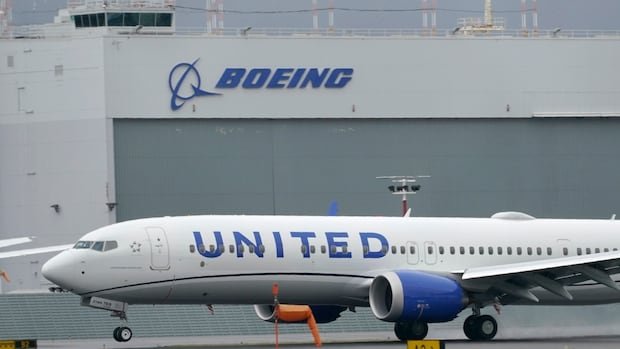A U.S. judge is set to review a settlement between the Justice Department and Boeing on Wednesday, determining whether to approve an agreement that would spare the aircraft manufacturer from prosecution over charges related to two deadly 737 Max plane crashes that claimed the lives of 346 individuals.
Judge Reed O’Connor in Texas will assess objections from families of crash victims in Indonesia and Ethiopia who oppose the deal, which grants Boeing a reprieve from oversight by an independent monitor for three years, following the crash in Ethiopia that resulted in the deaths of 18 Canadian citizens.
Boeing had initially agreed to plead guilty to criminal fraud charges last year for misleading U.S. regulators about a critical flight control system on the 737 Max, its top-selling aircraft, before retracting its admission of guilt.
The plea deal was struck towards the end of the Biden administration but was rejected by O’Connor in December due to concerns over a diversity and inclusion provision in the agreement. Subsequently, the case extended into the Trump administration, leading to a tentative non-prosecution arrangement.
Chris and Clariss Moore, parents of Danielle Moore who perished in the Ethiopian crash, are expected to attend the hearing. Chris Moore criticized the proposed non-prosecution deal as an unreasonable compromise that could jeopardize passenger safety and undermine principles of justice.
While some families have settled civil suits with Boeing, others argue that dismissing the charge is not in the public’s interest, citing previous remarks by O’Connor characterizing Boeing’s actions as potentially the deadliest corporate crime in U.S. history.
Boeing contends that the decision to prosecute lies solely with the executive branch and has urged O’Connor to reject objections from families and approve the dismissal of the criminal charge.
Under the terms of the non-prosecution agreement, Boeing agreed to contribute $444.5 million to a fund for crash victims, in addition to a $243.6 million fine, totaling $1.1 billion including compensation to families and investments in compliance and safety measures.
Following an incident involving a Max 9 aircraft in January 2024, Boeing has faced increased scrutiny from the Federal Aviation Administration, prompting the Justice Department to revisit the previous fatal crashes and negotiate a revised agreement with the company.


